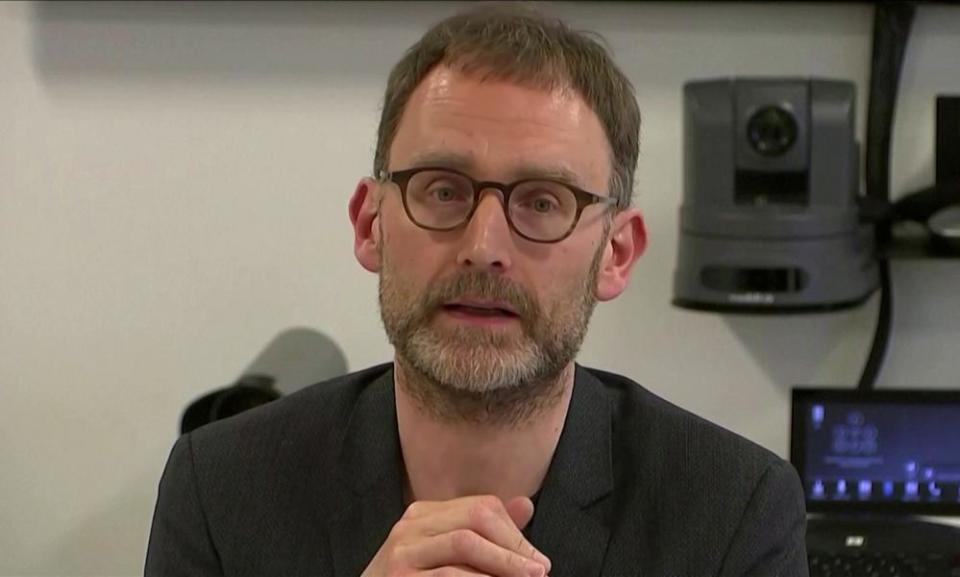Neil Ferguson: easing Covid rules for Christmas is 'political judgment'

The scientist whose modelling led to the original UK lockdown has said it would be a political judgment whether restrictions on households mixing should be relaxed over Christmas.
Prof Neil Ferguson said policymakers would have to balance the benefits of allowing family members from different households to mix indoors against the potential risks, which he said were “likely to be limited”.
“It risks some transmission and there will be consequences of that. Some people will die because of getting infected on that day,” he told BBC Radio 4’s Today programme.
“But if it is only one or two days, the impact is likely to be limited. So that is really a political judgment about the cost versus the benefits.”
default
His comments came as the Welsh health minister, Vaughan Gething, said Wales’ 17-day firebreak lockdown would give people the “best chance” of seeing one another over Christmas by hopefully reducing the R value – the number of people each coronavirus case infects – to below one.
On Friday, Prof John Edmunds, a member of the Scientific Advisory Group for Emergencies (Sage), said the idea that “we can carry on as we are” and have a normal Christmas “is wishful thinking in the extreme”.
Downing Street has meanwhile said it was the government’s ambition “to ensure that people may celebrate Christmas as a family this year” and has introduced a tiered restriction-level system across England.
Across the UK, there are just under 8,000 people in hospital with coronavirus, Ferguson said, about a third of the total at the peak of infections in March.
He said that the NHS could be unable to cope if coronavirus cases continue to increase at the present rate, with infections rising in every adult age group apart from 18- to 21-year-olds.
“There are little hints of slowing, for instance in the north-east of England, but we are not seeing the sort of slowing that we really need to get on top of this,” he said.
“If the rate of growth continues as it is, it means that in a month’s time we will above that peak level in March and that is probably unsustainable. We are in a critical time right now.”
Modelling by Imperial College in March forecast that in a worst-case scenario without the implementation of wide-ranging measures to reduce transmission, 510,000 people in the UK could die.
The then unpublished study led to the government’s volte-face, but the scientific basis for lockdown has since come under growing scrutiny amid growing collateral damage – from increased mental health issues to cancelled operations, significant interruptions to children’s development and growing poverty.
There were 2,703 excess deaths across England and Wales in September, with a total of 39,827 dying, official figures show, but coronavirus was not in the 10 leading causes of death. The leading cause of death was dementia and Alzheimer’s disease.
Coronavirus was the underlying cause of death in 11.5% of all deaths in England and 9% of those in Wales from January to September this year. The average age of those who died was 82.
Ferguson added that if restrictions on households mixing fail to stem the rise of coronavirus infections, then the government may have to close schools to older pupils.
“That [banning households mixing] should have a significant effect, but as yet we have been unable to see it definitively,” he told the Today programme.
“If we go beyond that there is a limit to what we can do in terms of reducing contacts, short of starting to target, for instance, the older years in schools and sixth form colleges, where we know older teenagers are able to transmit as adults.
“Of course, nobody wants to start moving to virtual education and closing schools even partially. The challenge may be that we are not able to get on top of the transmission otherwise.”

 Yahoo Finance
Yahoo Finance 